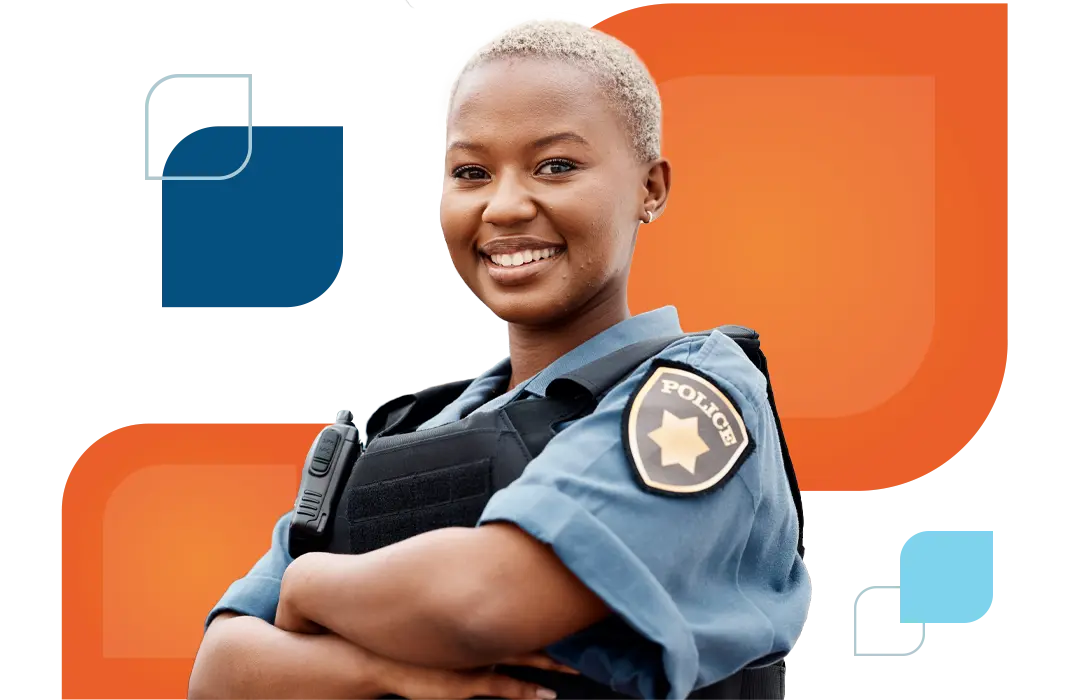Mental Health Training for Public Safety Officers
Every day, officers deal with dangerous situations — including mental health crises — that impact how they cope with their own stress. Equip them with tools to care for themselves and those they serve.
Find Training Train a Group
If you took the One Mind Pledge, you can schedule a training for your agency.
How Mental Health First Aid Helps
A majority of police officers face high-stress and potentially traumatic situations, long and irregular work hours, and understaffing, which can lead to alcohol use, PTSD, suicide and depression. Our evidence-based training gives them practical tools to prioritize their own mental wellbeing — and help others.

Increase Mental Health Literacy
In the line of duty, officers interact with people experiencing mental health crises, but they may not know what’s wrong. Learn to spot the signs of substance use, psychosis and more.

Promote Safety
Give your team the tools to safely handle mental health and substance use crises — for both the public and each other.

Know How to Help
Police are more likely to die by suicide than in the line of duty. Learn our MHFA Action Plan (ALGEE) to know what to do when your colleagues need you.

Build Trust
We have to talk about mental health – 90% of police officers say mental health stigma is a barrier to seeking help.
Reduce Stigma
Nearly 70% of police officers think getting help will hurt their careers. Change the workplace culture so it’s OK to speak up.
Support Wellbeing
1 in 4 police officers face alcohol use challenges. Learn self-care skills for a more resilient police force.
Who Should Take MHFA?
- Police officers
- 911 dispatchers
- Security professionals
What You Learn
In this full-day training, you’ll learn how to address mental health and substance use challenges in public safety officers. The training covers alcohol use, depression, PTSD, suicide and more. You’ll be able to:
- Understand the impact of mental health and substance use challenges on the wellbeing of public safety personnel.
- Know the risk and protective factors specific to working in public safety.
- Explain and use the MHFA Action Plan (ALGEE) in scenarios designed for public safety.
- Address stigma and explain that recovery is possible.
- Ensure safety and privacy during conversations.
- Choose methods for self-care for yourself and others.
Captain Joseph Coffey
Ret., Rhode Island Municipal Police Academy and MHFA National Trainer
“My Mental Health First Aid training helped me save a life, and regular incidents serve as reminders of how public safety officers fall back on their training in times of crisis.”
